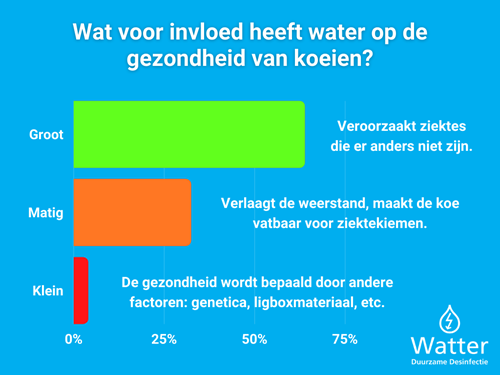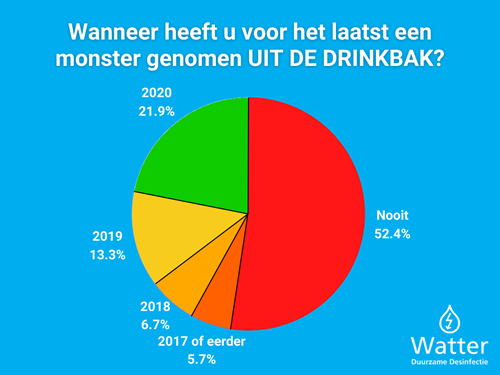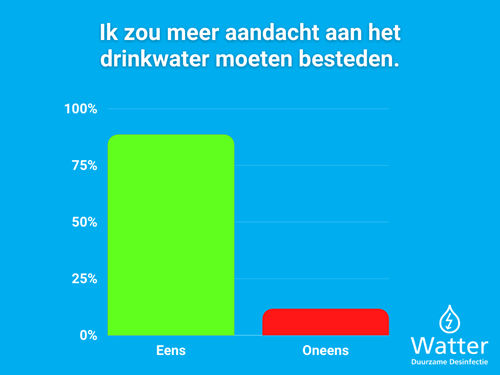Dairy farmer misses opportunities in the drinking trough
The Dutch dairy farmer subscribes to the importance of clean drinking water, but action to do something about it too often fails to materialize.
A survey of nearly 300 viewers of the Optimal Stable Climate webinar shows that there are still many opportunities for dairy farmers to improve their drinking water. Almost every interviewee (96.1%) indicated that the quality of the drinking water has an impact on cattle welfare and production. However, action from the dairy farmer is lacking: more than half of those surveyed (52.4%) have never taken a water sample from the drinking trough, while nine in ten dairy farmers say they need to pay more attention to their cows' drinking water (88.5%). An unprecedented figure in animal husbandry: on pig and poultry farms, it is quite normal to take quarterly samples from the animals' watering holes.

Arjan Koop, director of Watter BV, has a logical explanation for this. With his company, he focuses on drinking water hygiene in livestock farming and he sees that often the right guidance is lacking for a targeted approach on the dairy farm. "With most farmers, but also their advisors, there is not always the right knowledge of where and how the water deteriorates. For example, regularly brushing the drinking troughs clean is largely symptom control. This does not make the water bacteria-free, nor does it address the biofilm in the pipes. In addition, I express concern about the advance of chemicals. These are often expensive, unsafe and regularly not used properly."

In the webinar, Koop explains exactly how it is possible for biofilm to grow in the pipes and ways to fix it. "Obviously, it's a fantastic start when farmers start taking samples from the drinking trough. But also think about what step you take next if the drinking water turns out not to be good. To keep the water clean up to and including the drinking trough, you should structurally remove the bacteria with safe disinfection."




